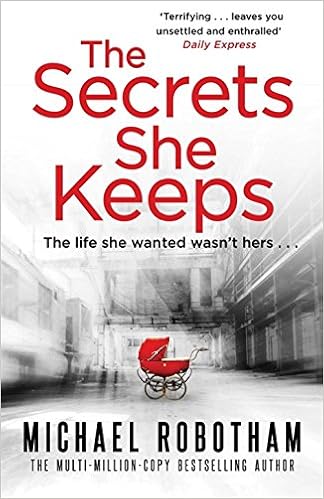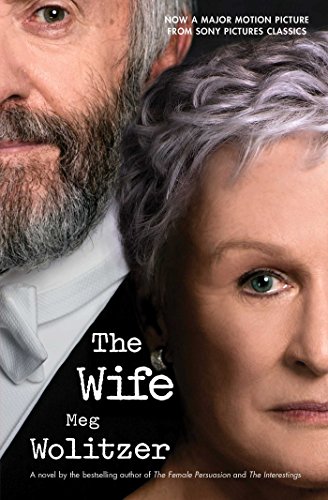2 Stars
 To state
that this book is a disappointment is an understatement. I really struggled to finish it; were it not
for the fact that I felt obligated to review it because I received a digital
galley, I would have abandoned it.
To state
that this book is a disappointment is an understatement. I really struggled to finish it; were it not
for the fact that I felt obligated to review it because I received a digital
galley, I would have abandoned it.
The
Malegarde family meets in Paris in January of 2018 to celebrate the 70th
birthday of the family patriarch Paul who is a world renowned arborist. Paul and his wife Lauren arrive in Paris
where their son Linden and their daughter Tilia are waiting. The family reunion does not go as planned;
much of Paris is experiencing flooding and Paul suffers a medical emergency
that requires his hospitalization. While
they are together, various family secrets are divulged.
The
narrator is Linden, a celebrated photographer who is gay but has never actually
discussed his sexuality with his father.
Of course, communication seems not to be the métier of any of the family
members. Lauren keeps a secret from her
husband; Tilia never speaks of an accident in which she was injured; and Paul
has a secret which he has hidden “where it won’t be found. No one knows.
No one will.” It is Tilia’s secret
that seems contrived. Linden might not
have heard personal details from his sister but there would have been
information easily available online.
The book
needs extensive editing. Over and over
again, there are detailed descriptions of the flooding and a comparison to the
1910 flood which is repeatedly mentioned.
Then there are the constant references to Paris streets and arrondissements. Words referring to street (“rue” or “avenue” or “boulevard”) are used over 100
times!
Even the
style is tedious. There is very little
dialogue; instead, Linden just recounts conversations so there is no sense of
immediacy. So much telling, as opposed
to showing, leaves the reader feeling detached.
What’s with the obsession with years?
Besides the 2 dozen references to the floods of 1910 and 2016, various
years between 1997 and 2016 are specifically identified 58 times! There is little variety in sentence
structure. So many of the sentences are short,
choppy, simple sentences (“Tilia halts.
Her trembling hands cover her face like a mask. Linden and Mistral do not move. The only sound is the gush of rain . . .
Suddenly the phone rings . . . Mistral answers it. She nods, murmurs a few words, then hangs
up. Linden asks her who it was. She whispers that it’s not important.”) as if
the author cannot write a compound or complex sentence. Then there are the long series of
interrogative sentences: “What does Paul
know? How long has it been going on? . .
. Is this a recent affair? Or one of
those long-lasting clandestine ones, like Candice and J.G.’s? . . . Are his
parents happy? Have they always been
happy?” and “Why her? Why them, and not
her? Why had all her friends died? Why had she been the one left behind? The only one?”
The author
often seems to toy with the reader. At
the beginning, she avoids using gender-specific pronouns to refer to Sasha as
if to later shock the reader about Linden’s homosexuality. The same is done with the opening passages of
the chapters when it is not made clear who (Linden or Paul) is writing the
flashbacks.
Symbolism
usually adds depth to a novel. In this
case, however, the symbolism is clumsy and heavy-handed. Paris is being flooded and the reader is to
understand that the family is drowning
in secrets and a storm is brewing as
they gather for their reunion which arouses a flood of emotions. As the Seine
dredges up what has been buried, so are the family’s secrets dredged up. It’s
impossible to miss the metaphor: “It
seems his father’s life is slowly ebbing away, with the same stealthy pace as
the rise of the Seine, as if the two events are intertwined and preordained.” As Paris is deluged by water, Linden is
inundated with memories of his time in the city. After the waters recede, will the family
emerge cleansed?
Much of the
narrative is disjointed. Much is made of
Tilia’s speaking about the accident which left her with mental and physical
scars, but then it is never mentioned again.
The backstories of characters are supplied but they serve little
purpose. Linden is placed in positions
that make little sense. Why does he go
on the second boat trip since he is not allowed to take photos and his presence
would serve only as a hindrance to rescuers?
Likewise, he is asked to be at an evacuation though he would become one
more person for those in charge to worry about?
And what’s with unexpectedly dropping characters into the story? Three different people arrive unannounced.
Sometimes
things just seem thrown into the plot mix.
Linden leaves Tilia to get some medication for his mother: “He leaves Lauren in Tilia’s care. She’ll deal with getting the
prescription.” Then later we are told
that “medication has been the subject to avoid with his sister ever since her
accident. She harbors profound
skepticism about doctor’s prescriptions” and “It had been complicated enough
getting her to approve of the treatment Lauren was receiving for her
pneumonia.” This complication was never
mentioned! And don’t get me started on
that ending with its great reveal. It’s
anticlimactic and explains little. Is it
supposed to explain the reason for Paul’s preference for trees over
people? It does not connect to the rest
of the storyline except to suggest that Paul decided he should share his
secret.
A repeated
message is that people need to care more for each other. One woman dies because of “the lack of
caring.” One character “hates this
egocentric world where selfies rule, where no one bothers to find out if their
neighbor is all right.” We are told that
in the 1910 flood, “people were kinder to one another . . . They watched out
for their neighbors; they made sure everyone was dry and safe. Solidarity ruled, and this, sadly, is no
longer true in our modern selfish world.”
Despite the
many references to deep waters, I found the book rather shallow. It does not flow; rather, it is
disjointed. Many scenes lack
purpose. I hate being so negative, but I
honestly found little to admire in this book.
Reading it was like wading through the detritus of a flood.
Note: I received a digital galley of this book from the publisher via NetGalley.
 This is the
fourth book in the Cormoran Strike series written by J. K. Rowling under a
pseudonym. Set amid the 2012 Olympics in
London, the novel picks up from where the previous novel, Career of Evil, leaves off.
This is the
fourth book in the Cormoran Strike series written by J. K. Rowling under a
pseudonym. Set amid the 2012 Olympics in
London, the novel picks up from where the previous novel, Career of Evil, leaves off.




